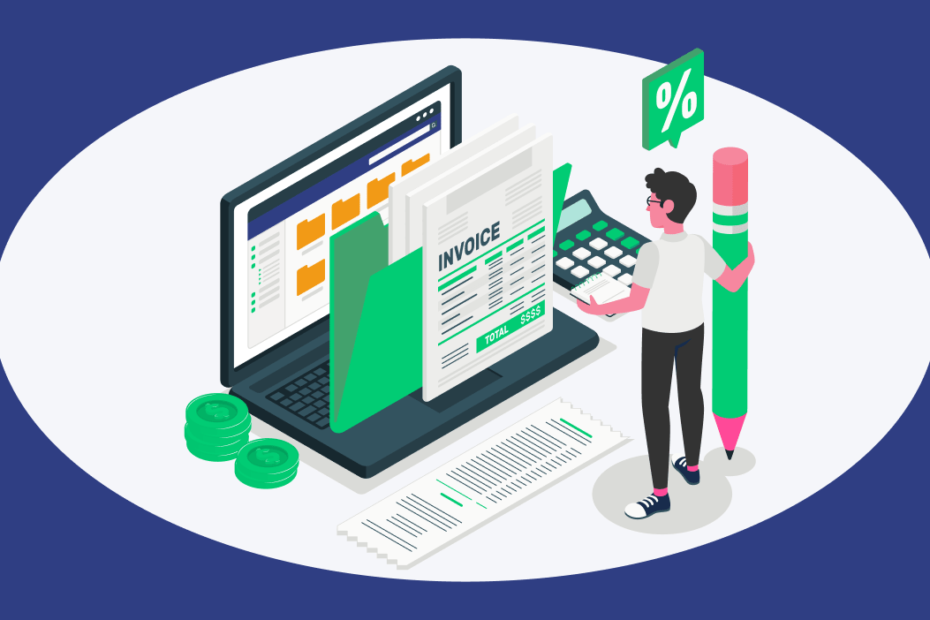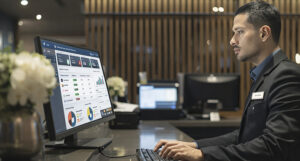Property management software (PMS) has become an essential tool for hotels and hostels, streamlining various aspects of their operations. Here are some ways in which property management software is aiding these businesses:
- Reservation Management: Property management software allows hotels and hostels to manage reservations efficiently. It enables them to accept bookings from various channels like online travel agencies (OTAs), direct bookings from their website, or walk-ins, and centralizes all reservations in one system.
- Room Assignment and Inventory Management: Property management software helps in assigning rooms to guests based on their preferences and availability. It also tracks room inventory in real-time, preventing overbooking and ensuring optimal occupancy levels.
- Check-In and Check-Out Processes: Property management software automates the check-in and check-out processes, reducing the time guests spend at the front desk. It facilitates online check-ins, mobile key integration, and automates payment processing, enhancing the overall guest experience.
- Billing and Invoicing: PMS simplifies billing and invoicing processes by generating accurate bills based on guest stays, additional services availed, and any other charges incurred. It integrates with payment gateways, allowing for secure and convenient payment options.
- Guest Communication and Engagement: Many Property management software platforms offer guest communication features such as automated emails and SMS notifications, personalized messaging, and guest feedback collection. These help hotels and hostels stay connected with guests before, during, and after their stay, enhancing guest satisfaction and loyalty.
- Reporting and Analytics: Property management software generates various reports and analytics, providing insights into key performance metrics such as occupancy rates, revenue per available room (RevPAR), average daily rate (ADR), and guest demographics. This data helps hoteliers make informed decisions to optimize their operations and maximize revenue.
- Integration with Other Systems: PMS often integrates with other hotel systems such as point-of-sale (POS), accounting, and customer relationship management (CRM) software, creating a seamless workflow and eliminating the need for manual data entry.
Overall, property management software is helping hotels and hostels improve operational efficiency, enhance guest experiences, and drive revenue growth in today’s competitive hospitality industry.
How Property Management Software Is Helping Hotels And Hostels
Property management software (PMS) plays an important role in both hotels and hostels, though the differences in their operations necessitate distinct functionalities. Here are seven clear and logical differences in how PMS supports these two types of accommodations.
1. Booking Management
- Hotels: PMS for hotels often handles complex booking scenarios, including room upgrades, special requests, and multi-room bookings. It also integrates with online travel agencies (OTAs) and global distribution systems (GDS) for wider reach.Hostels: Hostel property management software focuses on managing dormitory beds, often allowing for individual bed bookings within shared rooms. It may prioritize group bookings and offer features like gender-specific dorms.
2. Inventory Management
- Hotels: PMS in hotels manages diverse room types, often including suites, standard rooms, and sometimes villas or cottages. It tracks amenities, room features, and availability across various seasons.
- Hostels: Hostel property management software tracks beds in dormitories, sometimes with options for private rooms. It may prioritize bed availability and offer features like lockers for each guest.
3. Pricing and Revenue Management
- Hotels: Hotel PMS usually includes revenue management tools to optimize room rates based on demand, seasonality, and competitor pricing. It may integrate with revenue management systems for dynamic pricing.
- Hostels: Hostel property management software may focus more on fixed pricing models for beds, but still provide tools for managing rates based on occupancy and events, especially in popular hostel destinations.
4. Guest Experience
- Hotels: PMS in hotels often integrates with guest relationship management (CRM) systems to track guest preferences and history. It may facilitate loyalty programs and guest feedback management.
- Hostels: Property management software may prioritize community-building features, such as shared kitchens and common areas. It might include social features like event organization or city tours, fostering a communal atmosphere among guests.
5. Housekeeping and Maintenance
- Hotels: Hotel PMS manages housekeeping schedules, room status updates, and maintenance requests. It may integrate with housekeeping apps and IoT devices for efficient operations.
- Hostels: Property management software also schedules housekeeping for dormitories and common areas. It may prioritize quick turnaround times for bed cleaning and offer tools for managing shared facilities like bathrooms.
6. Security and Access Control
- Hotels: PMS in hotels often includes features for key card access, security monitoring, and guest safety. It may integrate with property security systems for surveillance and access control.
- Hostels: Property management software may offer similar access control features for dormitory rooms and lockers. It may also include guest registration and identity verification tools for added security in shared accommodations.
7. Reporting and Analytics
- Hotels: Hotel PMS provides detailed reports on occupancy rates, revenue performance, and guest demographics. It offers insights into booking trends and marketing effectiveness.
- Hostels: Hostel PMS offers similar reporting capabilities tailored to hostel operations, including bed occupancy rates, revenue per bed, and guest nationality trends. It may also track social engagement metrics within the hostel community.
These differences in functionality reflect the unique needs and priorities of hotels and hostels, and how property management software caters to those requirements accordingly.
Automate Various Tasks With The Best Property Management Software
Property Management Software (PMS) is a tool used by property managers to streamline and automate various tasks related to managing real estate properties. It offers a wide range of benefits that can be helpful in different aspects of property management:
- Centralized Data Management: PMS consolidates all property-related information into a centralized database, making it easier to access and manage data such as tenant details, lease agreements, maintenance records, and financial transactions.
- Efficient Communication: PMS often includes communication tools such as messaging features or portals where tenants, property owners, and managers can easily communicate and share information, reducing the need for back-and-forth emails or phone calls.
- Streamlined Operations: By automating repetitive tasks such as rent collection, lease renewals, maintenance requests, and invoice generation, PMS helps property managers save time and streamline their daily operations.
- Improved Tenant Experience: Property management software can enhance the tenant experience by providing self-service portals where tenants can pay rent online, submit maintenance requests, and access important documents like lease agreements and move-in checklists.
- Better Financial Management: PMS software typically includes features for accounting and financial management, such as tracking rent payments, generating financial reports, and monitoring expenses, helping property managers maintain accurate financial records and make informed decisions.
- Enhanced Maintenance Management: PMS often includes tools for managing maintenance and repair tasks, such as tracking work orders, scheduling inspections, and monitoring vendor performance, leading to more efficient maintenance processes and improved property upkeep.
- Increased Occupancy Rates: PMS systems can help property managers attract and retain tenants by offering online listings, automated rental applications, and efficient leasing processes, ultimately leading to higher occupancy rates and reduced vacancy periods.
- Compliance and Risk Management: PMS may include features to help property managers stay compliant with local regulations and industry standards, such as tracking lease expirations, managing security deposits, and generating legal documents.
- Data Analytics and Insights: PMS systems often come with reporting and analytics tools that allow property managers to analyze key performance metrics, identify trends, and gain insights into their properties’ financial and operational performance, enabling them to make data-driven decisions.
- Scalability and Growth: As property portfolios expand, Property management software can scale to accommodate the growing needs of property managers, offering features such as multi-property management, portfolio analytics, and integrations with other systems to support continued growth and expansion.
Overall, Property management system offers numerous benefits that can significantly improve efficiency, productivity, and profitability in property management operations. Aiosell is the best platform providing the well functional hotel management software to ease your work and provide you the best experience.
Book the best 30-days free trial hotel management software today!



